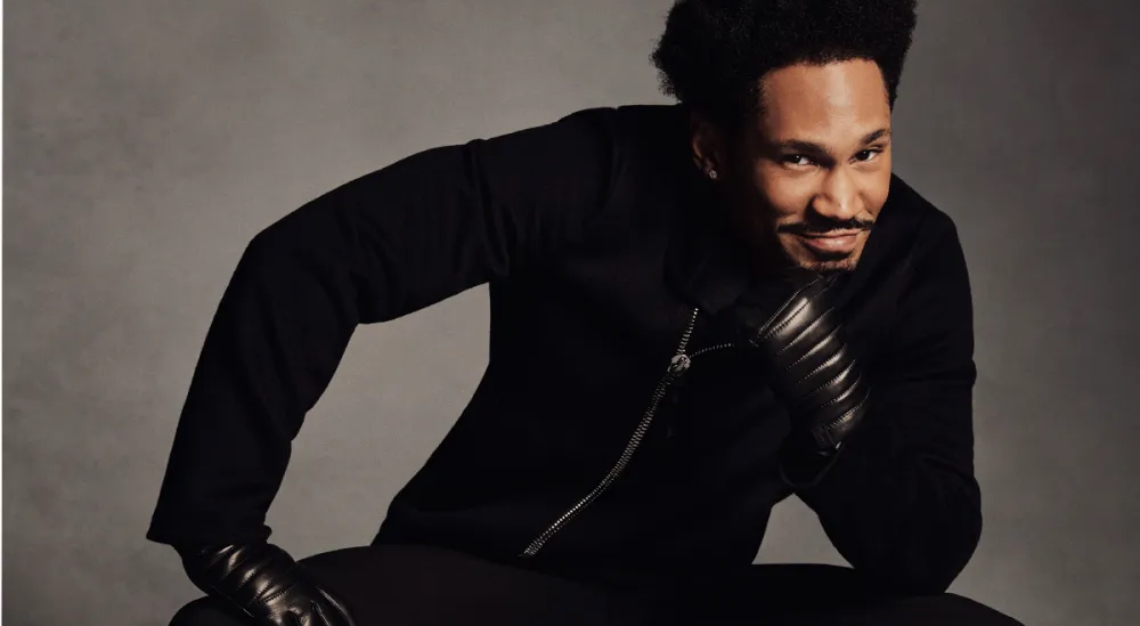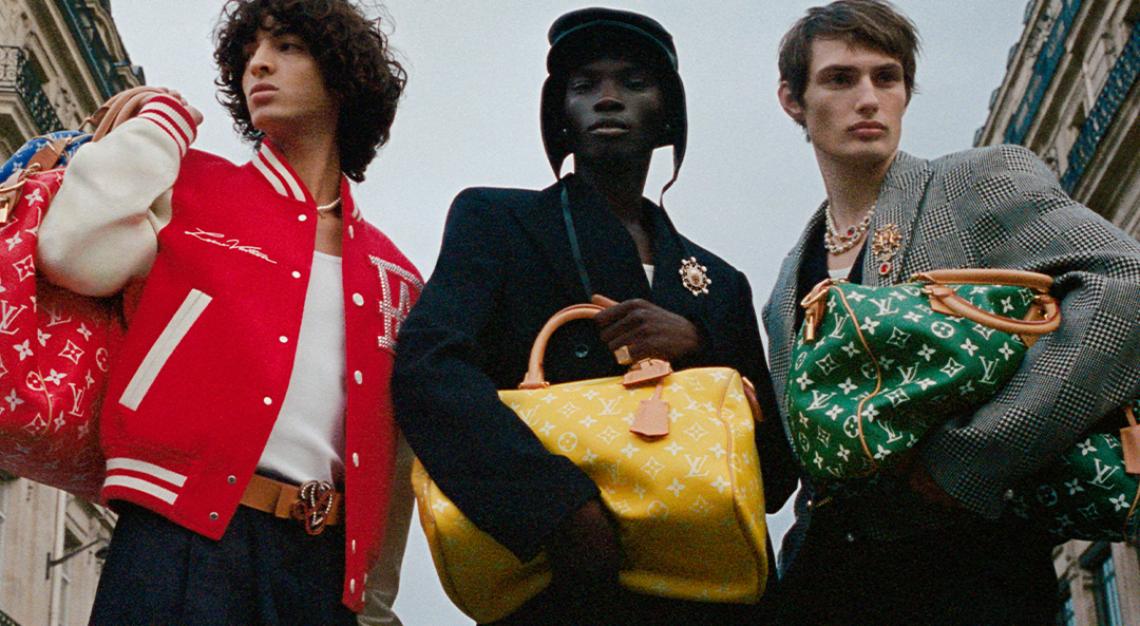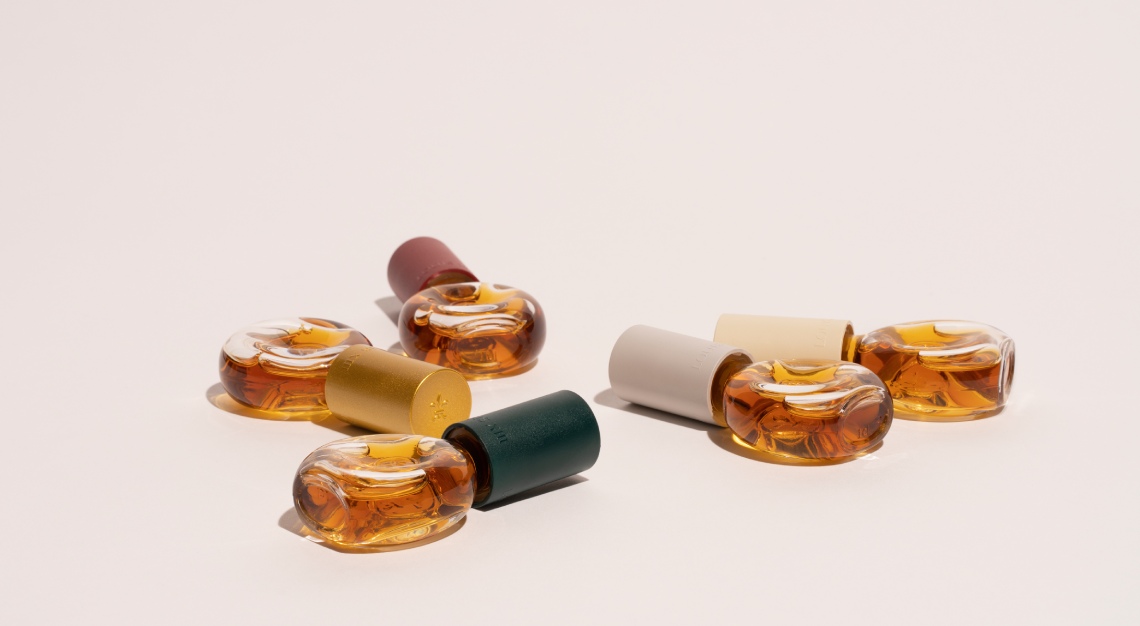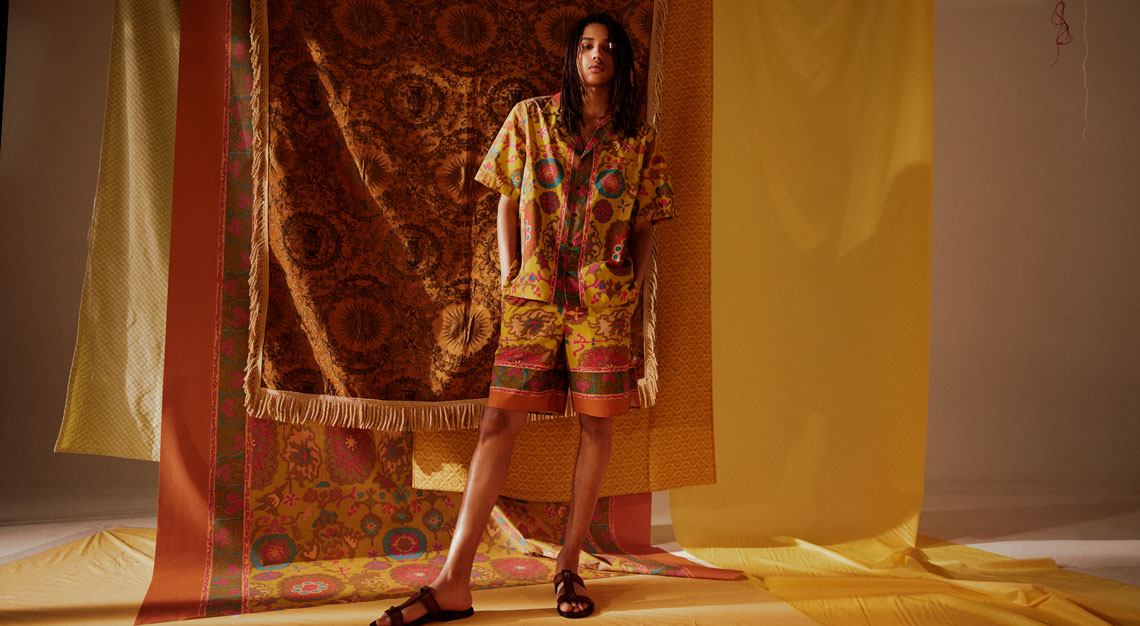Once a symbol of capitalist excess, the contrast-collar shirt has found a broad new audience
With present-day Gordon Gekkos more likely to sport fleece vests and AirPods than pinstripes and power ties, now seems an unlikely time for Wall Street’s favourite shirt to mount a comeback. And yet, the contrast-collar dress shirt—also referred to as a “banker” shirt or, when featuring pattern, a “Winchester”—is appearing in new collections from well-established brands and upstart labels alike.
The style is a fixture of Paul Stuart’s Phineas Cole line, which offers it in the classic solid blue body/white collar iteration, or with a horizontally striped body set against a round white collar. According to Paul Stuart creative director Ralph Auriemma, the contrast collar first found popularity with university students and faculty in Victorian England and began to appear on the silver screen in the 1930s and ‘40s. The appeal it gained from this unique heritage—equal parts aristocratic-eccentric and leading man-suave—is still recognized today. “It gives the wearer a bit of a dandy flare to his shirt and tie combination,” Auriemma tells Robb Report.

Decades after its first contact with Hollywood, the style was given a starring role in 1987’s Wall Street, where it formed a key part of antihero Gordon Gekko’s on-screen attire and consequently became a symbol of ‘80s excess. But where some see capitalist villainy, others find an opportunity to be better dressed. Besnard founder Victor Besnard used Wall Street as the inspiration for his heritage-focused label’s pre-fall collection, which features solid end-on-end and striped poplin contrast collar shirts modelled after Gekko’s own.
“If we look back at 1960s business wear, it was quite minimalistic. Imagine any scene from Mad Men and you’ll know what I’m talking about,” Besnard says. “The ‘80s saw a countermovement drawing inspiration from the ‘30s and ‘40s with more colours, patterns and mixing of styles.”
In Besnard’s view, the style’s aesthetic excess is its greatest asset. “If we look at modern-day fashion, the general trend is minimalistic,” he continues. “I feel that a similar countermovement is happening where people are looking to dress more outspokenly. Personally, I find this direction more interesting.”
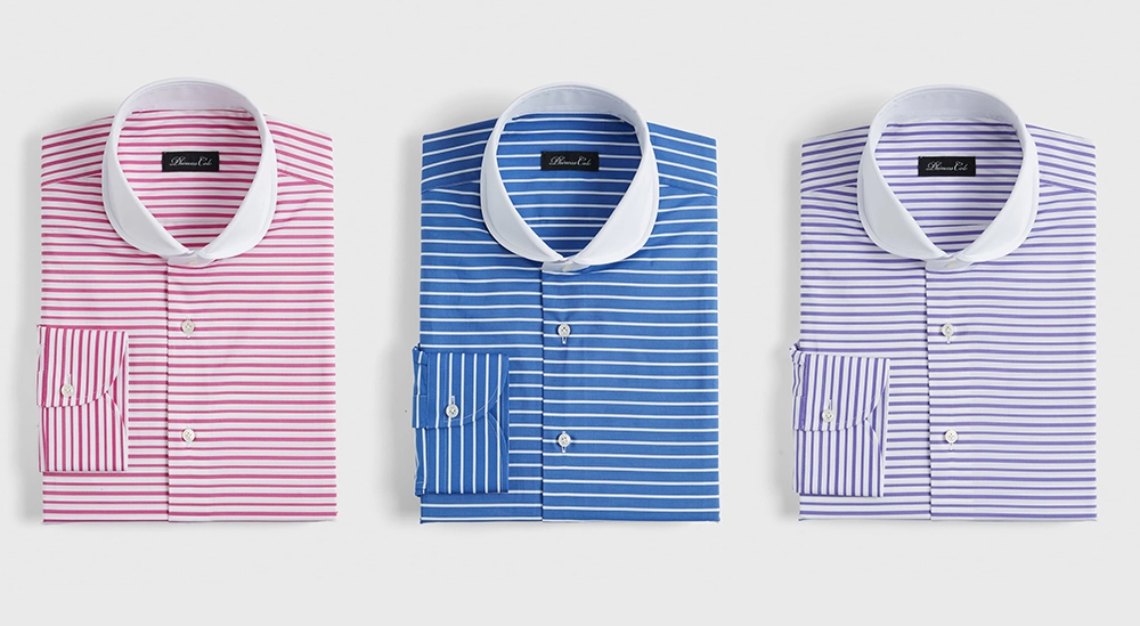
However, not every contrast collar shirt is designed for wear with peaked lapels or pleated trousers. More relaxed versions from Todd Snyder and indie label Le Alfré have begun hitting the market, pitching the dandyish style in a casual direction. “Winchester shirts are a menswear staple that I’ve been designing and wearing since my early days at Ralph Lauren, J. Crew and my brand. I even used to make my own shirts in my first NYC apartment long before my brand existed,” says Snyder, whose iterations are marked by a button-through chest pocket and either a rounded club or button-down collar. “The great thing about this style of shirt is that they can easily elevate an outfit with minimal effort.”
Snyder sees their appeal as perennial and inextricably linked to the style’s greatest on-screen champion. “Ever since the Michael Douglas Wall Street days, we see this style having a sartorial resurgence every few years,” he continues, noting the current taste for suits with personality. “We are seeing a big shift back to soft tailoring and this style works perfectly into that.”
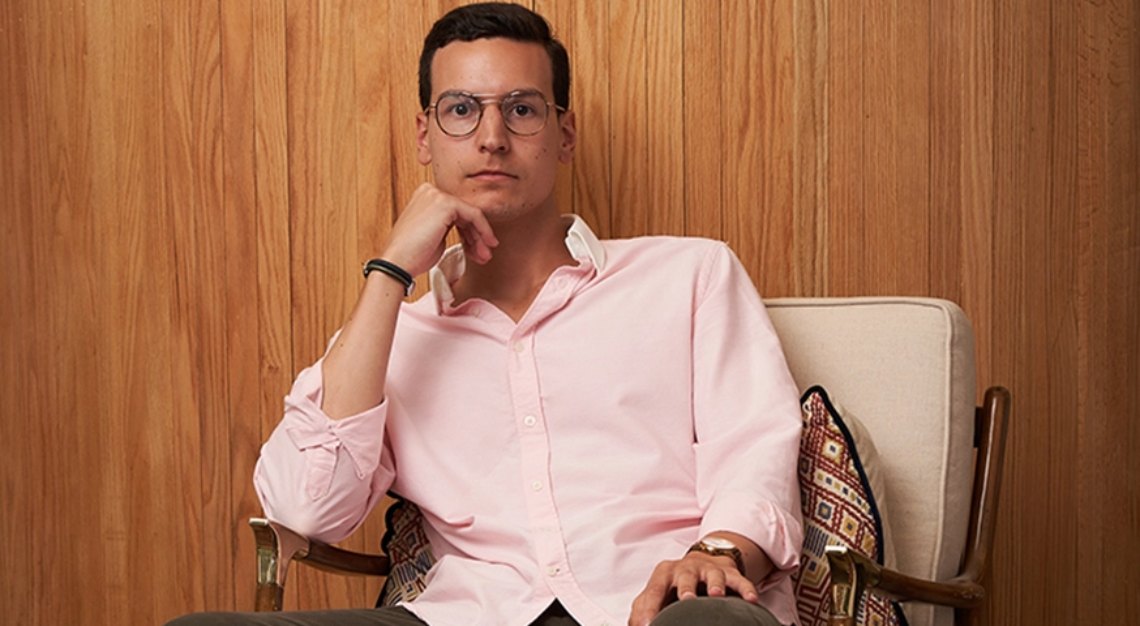
Le Alfré founder Brandon Snower might be the anti-Gordon Gekko. A former investment banking analyst who left the industry to start his own label, the 25-year-old now sells contrast-collar shirts for the work-from-anywhere set. Made from oxford cloth with a button-down collar and a shorter length, Le Alfré’s shirts hit the sweet spot where, as Snower explains, “you don’t have to wear a blazer or tuck in your shirt to be the best dressed…style it up as casually or as formally as you’d like.”
And while the label espouses a more egalitarian ethic, he recognizes that the style will always live in the shadow of Wall Street—for better or worse. “Like wearing a vintage Rolex or Cartier, the contrast collar shirt is a status symbol, a symbol of success. And that will never go out of style.”
Gekko, we imagine, would approve.
This article was first published on Robb Report USA


